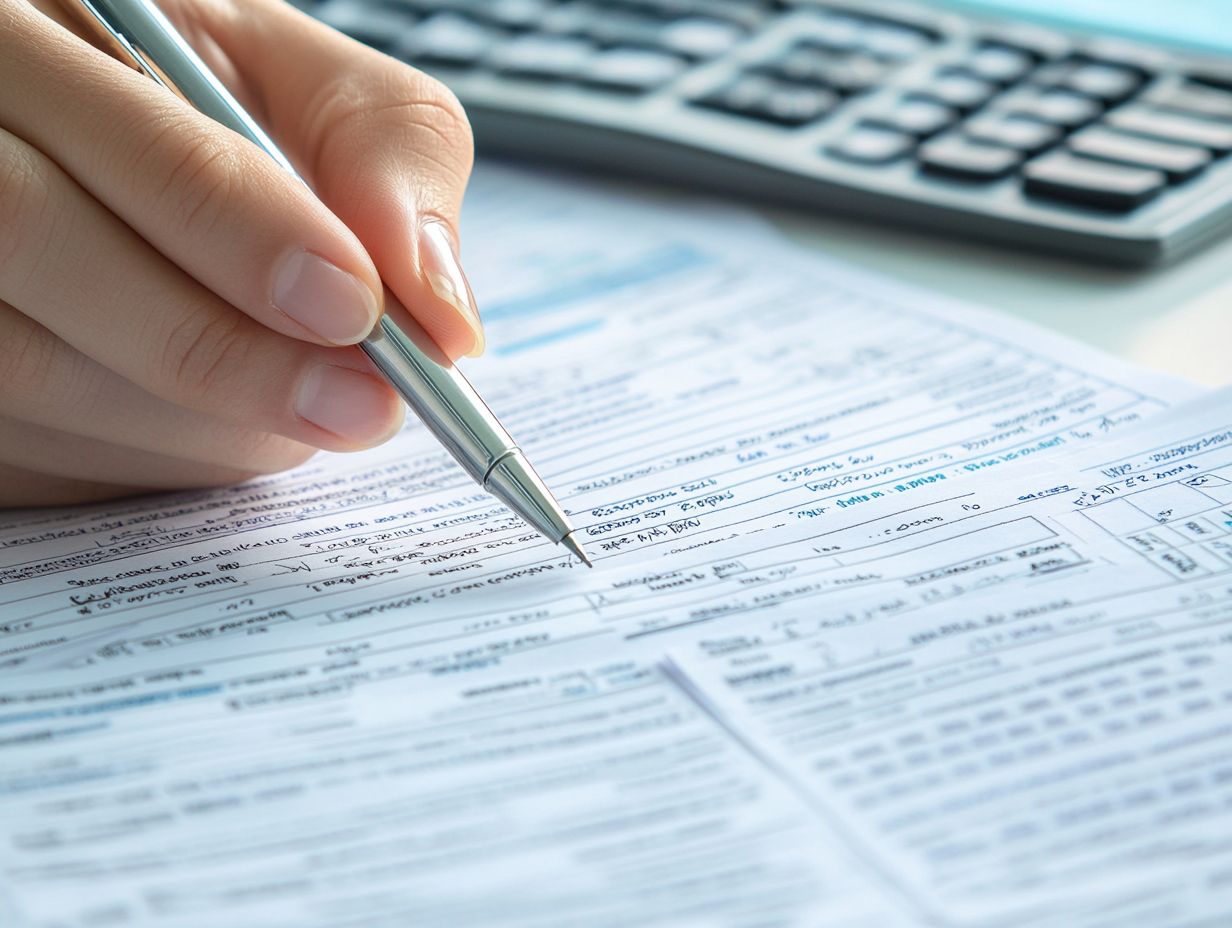What You Should Know About EINs
An Employer Identification Number (EIN) is a unique number for your business assigned by the IRS. It s a vital component of your business and its tax responsibilities.
Whether you re starting a new venture, hiring employees, or dealing with tax regulations, understanding the significance of an EIN and why it s necessary is crucial.
Let s explore how to get your EIN and why it s essential for your business success!
Learn everything you need to know, from obtaining an EIN to its legal and financial implications, equipping you with the insights to effectively manage your business.
Explore the intricacies of EINs and discover how they can elevate your enterprise to new heights.
Contents
Key Takeaways:

- An EIN, or Employer Identification Number, is a unique nine-digit number assigned by the IRS for tax and identification purposes.
- Businesses may need an EIN for various reasons, including hiring employees, opening a business bank account, or filing taxes.
- To obtain an EIN, you can apply online, by mail, or by fax, and you must provide information about the business, such as its structure and purpose.
What is an EIN?
An EIN is a unique nine-digit number assigned by the IRS to businesses in the United States. It serves as a vital identifier, similar to a Social Security number for individuals.
This number is essential for many business activities like filing taxes, hiring employees, and opening bank accounts. It is a cornerstone of the business registration process, underscoring its importance in your business journey.
Definition and Purpose
The EIN is an important identification tool for your business. It helps you fulfill tax obligations while providing a solid framework for your legal and financial operations.
This number, issued by the IRS, is crucial for different types of businesses, including sole proprietorships, partnerships, and corporations. You ll need it for filing tax returns, opening business bank accounts, and applying for licenses. The EIN boosts your business’s credibility, making it easier to secure funding and navigate regulations.
By using this number, you ensure compliance with federal regulations and create a clear separation between your personal and business finances critical for legal protection and effective tax planning.
Why You Might Need an EIN
An EIN is important for many reasons, such as meeting tax obligations, opening a business bank account, and hiring employees legally. It serves as a foundational element of your business operations, ensuring you re on solid ground in the eyes of the law and financial institutions.
Business and Tax Requirements

The specific business and tax requirements for obtaining an EIN can vary based on your business structure, whether it s a sole proprietorship or a partnership.
Understanding these distinctions is essential, as each structure has its own unique set of tax obligations and reporting requirements. For example, a sole proprietorship is a business owned by one person, handling income directly on personal tax returns. Partnerships must file an informational return that outlines earnings and losses distributed among partners. Corporations and limited liability companies often face more complex regulations, as they may be subjected to different tax rates and filing requirements.
Navigating these diverse obligations can feel overwhelming. It s crucial to stay informed about how your chosen structure influences your taxation and compliance responsibilities.
How to Obtain an EIN
Obtaining an EIN is a straightforward process with the IRS, designed for your convenience. You can easily complete the application online or submit the necessary forms, ensuring that every business owner has access to this essential step in launching their enterprise.
Your Quick Guide to Getting an EIN
The application process for obtaining an EIN involves completing specific IRS forms, providing essential business information, and outlining your business structure.
To navigate this process successfully, you need to supply key details, including the legal name of your business, the type of entity be it a sole proprietorship, partnership, corporation, or LLC and the reason you re applying. Accurately representing ownership and operational locations is vital for IRS compliance. You must also provide a valid taxpayer identification number, such as a Social Security Number for individuals, ensuring all information aligns correctly with IRS records.
Thorough preparation not only speeds up the EIN issuance but also sets your business up for future following the rules.
Using an EIN for Business
Once you obtain an EIN, it becomes an essential asset for your business, serving multiple functions. It acts as a critical identification number for tax reporting, facilitates financial transactions, and supports various legal operations.
Legal and Financial Implications

The legal and financial implications of using an EIN are significant, encompassing compliance with tax obligations and the capacity to engage in financial transactions legally.
Recognize that an Employer Identification Number is not just a bureaucratic detail; it is a crucial identifier for tax purposes and fundamental for establishing your business credit. This entails adhering to IRS regulations, ensuring your returns are filed on time, and maintaining meticulous records. Neglecting these responsibilities could lead to penalties, audits, or even more severe legal repercussions.
With an EIN, you can open business bank accounts and apply for loans, solidifying your legitimacy in the eyes of financial institutions. Understand your responsibilities. They are crucial for running your business effectively and achieving long-term success.
Maintaining an EIN
Maintaining an EIN requires you to keep the IRS informed of any changes to your business structure or ownership, ensuring that you remain compliant with federal regulations.
Stay sharp! Keeping the IRS updated is key to your success, as staying updated not only safeguards your business but also reinforces your commitment to regulatory standards.
Renewal and Updates
Your EIN doesn t expire, but it s crucial to keep the IRS in the loop about any significant changes in your business. This ensures that your information remains accurate and compliant.
By doing so, you uphold your standing with tax obligations and promote smoother operations within your business framework. Changes that require you to notify the IRS include:
- Business name
- Structure
- Address
- Ownership
For example, if you transition from a sole proprietorship to a corporation or experience a change in the partners of an LLC, these modifications must be reported.
Keeping the IRS updated with the most current information regarding your employer identification number is vital for tax filings and other regulatory matters. This proactive approach is an essential step in maintaining your EIN compliance and overall business integrity.
Watch this quick tutorial on EINs!
Frequently Asked Questions
What You Should Know About EINs?

An Employer Identification Number (EIN) is a unique, nine-digit number assigned by the Internal Revenue Service (IRS) to identify a business entity. It is also known as a Federal Tax Identification Number.
Who needs an EIN?
Any business entity, including sole proprietors, partnerships, corporations, non-profit organizations, and government agencies, that hires employees, has a business bank account, or files tax returns must have an EIN.
How do I apply for an EIN?
You can apply for an EIN online through the IRS website, by mail, fax, or by phone. The online application is the fastest and easiest method.
Ready to get your EIN? Start your application today!
Is there a fee to obtain an EIN?
No, there is no fee to obtain an Employer Identification Number (EIN)! Don t get tricked by third-party sites that might charge you. Always go to the official IRS website for your EIN needs!
Can I use the same EIN for multiple businesses?
No, each business entity must have its own unique EIN. If you have multiple businesses, you need to apply for a separate EIN for each one.
What happens if I change my business name or structure?
If your business name or structure changes, you must apply for a new EIN. If you are a sole proprietor and only your business name changes, continue using your existing EIN.





